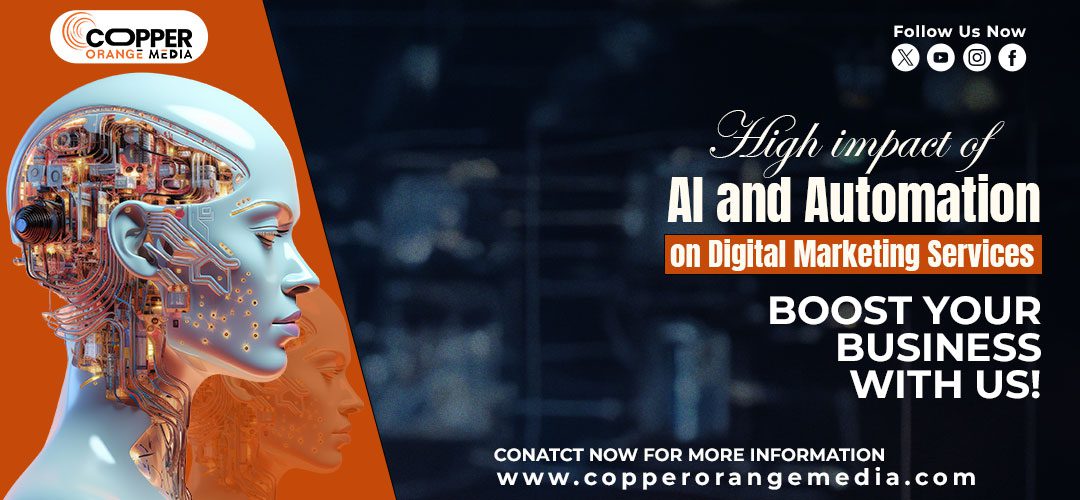AI and automation in digital marketing are driving a fundamental shift in how businesses operate. While traditional methods retain value, these technologies are transforming customer connections at unprecedented speed. Recent industry reports confirm this revolution, showing over 80% of marketing executives now actively use AI-powered tools in their campaigns.
As someone who’s worked in digital marketing for over a decade, I’ve personally observed this evolution. Initially, marketers approached AI with skepticism. However, as the technology matured, we began seeing tangible benefits that simply couldn’t be ignored. From personalized customer experiences to data-driven decision making, AI is enhancing every aspect of digital marketing.
That said, adopting these technologies requires careful consideration. While AI offers numerous advantages, it also presents challenges that marketers must address. In this comprehensive guide, we’ll explore both the opportunities and limitations of AI in digital marketing, providing actionable insights for businesses looking to stay ahead of the curve.
The AI Marketing Toolkit: Current Applications
Deep Learning for Customer Insights
First and foremost, AI excels at processing vast amounts of customer data. Unlike traditional analytics tools, machine learning algorithms can identify subtle patterns that humans might overlook. For example, by analyzing micro-interactions across various platforms, AI can predict customer behavior with remarkable accuracy.
Moreover, these insights enable hyper-personalized marketing strategies. Rather than relying on broad demographic segments, marketers can now tailor content to individual preferences. Consequently, businesses that implement AI-driven personalization often see significant improvements in conversion rates and customer retention.
Intelligent Content Generation
Another area where AI is making an impact is content creation. Although human creativity remains essential, AI tools can assist with various aspects of content production. For instance, natural language processing algorithms can generate data-driven headlines, optimize product descriptions, and even adapt content for different regional markets.
That being said, AI-generated content still requires human oversight. While the technology can produce technically sound copy, it often lacks the emotional resonance and brand voice that human writers provide. Therefore, the most effective approach combines AI efficiency with human creativity.
The Human-AI Collaboration Model
Optimizing Workflow Efficiency
When implemented correctly, AI doesn’t replace human marketers – it enhances their capabilities. On one hand, AI handles repetitive, data-intensive tasks like bid adjustments and performance tracking. On the other hand, human marketers focus on strategic decision-making and creative development.
Furthermore, this division of labor allows marketing teams to operate more efficiently. By automating routine processes, professionals can dedicate more time to high-value activities. As a result, businesses often see improved campaign performance alongside reduced operational costs.
Maintaining Brand Authenticity
While AI excels at data processing, maintaining brand authenticity still requires human judgment. For example, AI might suggest content variations based on engagement metrics, but human marketers ensure these variations align with brand values. Similarly, while chatbots can handle basic customer inquiries, complex issues still benefit from human empathy and problem-solving skills.
Emerging Frontiers in AI Marketing
Conversational Intelligence Advancements
Recent developments in natural language processing have significantly improved AI’s conversational abilities. Modern chatbots can now understand contextual nuances, recognize emotional tones, and communicate in multiple languages. As a result, businesses can provide 24/7 customer support without sacrificing quality.
Additionally, these advancements enable more sophisticated voice search optimization. As voice assistants become increasingly popular, marketers must adapt their strategies accordingly. AI tools can help identify voice search patterns and optimize content for conversational queries.
Predictive Analytics Evolution
Predictive analytics is becoming increasingly sophisticated. Today’s AI systems can not only analyze past behavior but also anticipate future customer actions. For instance, by examining purchase history and engagement patterns, AI can predict which customers are most likely to churn.
Subsequently, marketers can implement targeted retention strategies before customers disengage. This proactive approach often proves more effective than traditional reactive methods.
Implementing AI Marketing: A Practical Roadmap
Building a Strong Data Foundation
Before implementing AI solutions, businesses must establish robust data infrastructure. First, ensure all customer data is clean and properly organized. Next, implement comprehensive tracking systems to capture relevant metrics. Without accurate data inputs, even the most advanced AI tools will produce unreliable outputs.
Adopting a Phased Approach
Rather than attempting a complete AI overhaul, consider a gradual implementation. Start with specific use cases like email personalization or ad optimization. After evaluating the results, gradually expand to more complex applications. This measured approach allows for continuous learning and adjustment.
The Future Human Marketer
Evolving Skill Sets
As AI handles more executional tasks, the marketer’s role is shifting toward strategic oversight. In particular, professionals will need strong analytical skills to interpret AI outputs and make data-driven decisions. At the same time, creative thinking and emotional intelligence will remain crucial for developing compelling campaigns.
Ethical Considerations
With great power comes great responsibility. As AI becomes more prevalent, marketers must prioritize ethical considerations. This includes transparent data usage, bias mitigation in algorithms, and maintaining genuine human connections despite increasing automation.
Conclusion:
Ultimately, the rise of AI in digital marketing represents an evolution rather than a revolution. While the tools are changing, the fundamental goals remain the same: connecting with audiences, building brand loyalty, and driving business growth.
By thoughtfully integrating AI where it adds value while preserving human judgment where it matters most, marketers can achieve unprecedented levels of efficiency and effectiveness. The future belongs to those who can harness these technologies while maintaining the creativity and strategic vision that define exceptional marketing.
FAQs
How does AI impact marketing team structures?
AI creates more specialized roles while evolving traditional positions, with new opportunities in AI supervision and data strategy.
What’s the learning curve for AI marketing tools?
Modern platforms are user-friendly with intuitive interfaces and training resources, making them accessible for non-technical users.
Can small businesses benefit from AI marketing?
Yes, scalable pricing models allow businesses of all sizes to access powerful AI tools affordably.
How do we measure AI marketing ROI?
Track KPIs like conversion rates, customer acquisition costs, and lifetime value before/after implementation.
What safeguards prevent poor AI marketing decisions?
Maintain human oversight with review processes to validate AI recommendations before execution.







One thought on “AI and Automation in Digital Marketing”
Comments are closed.